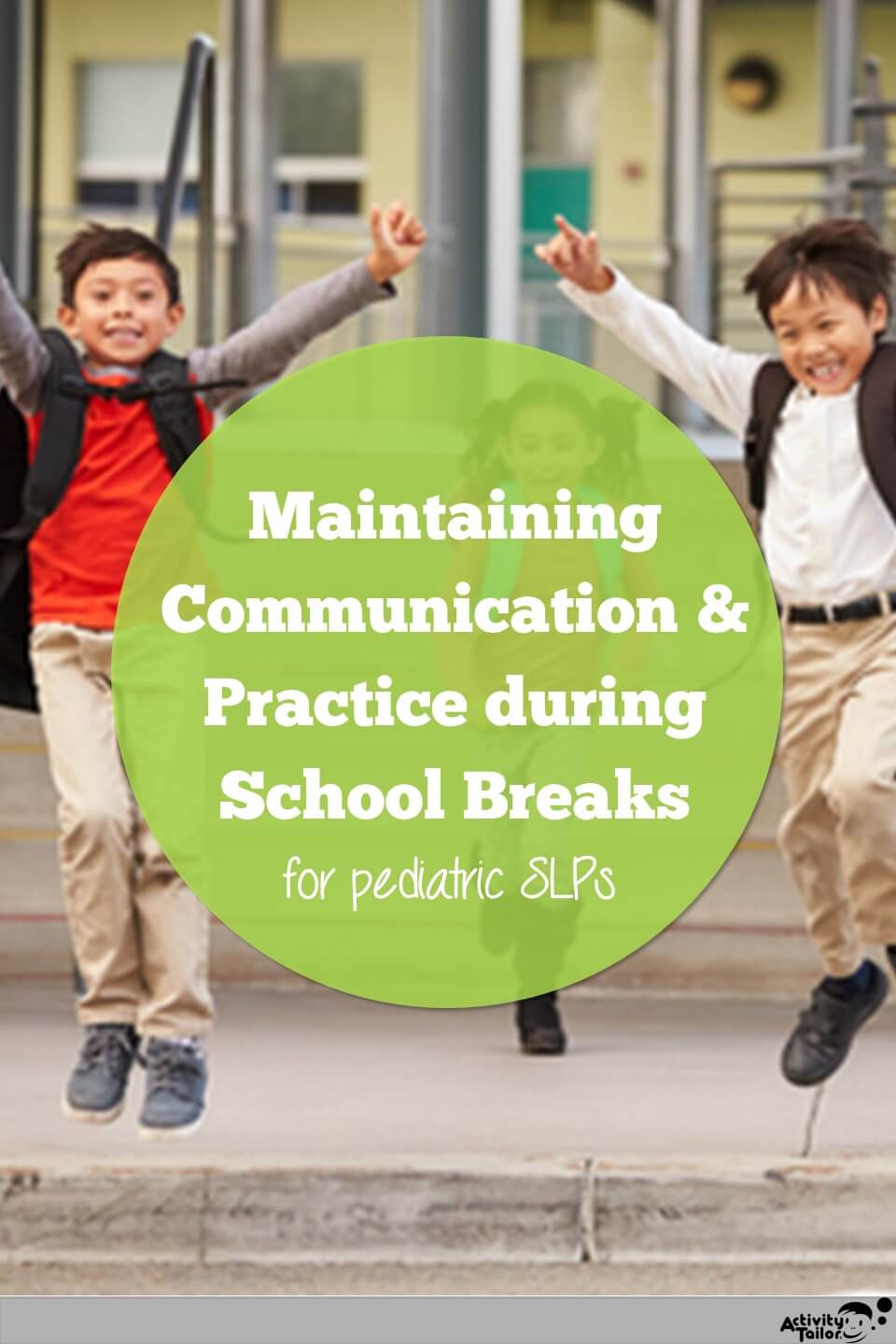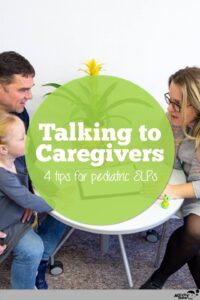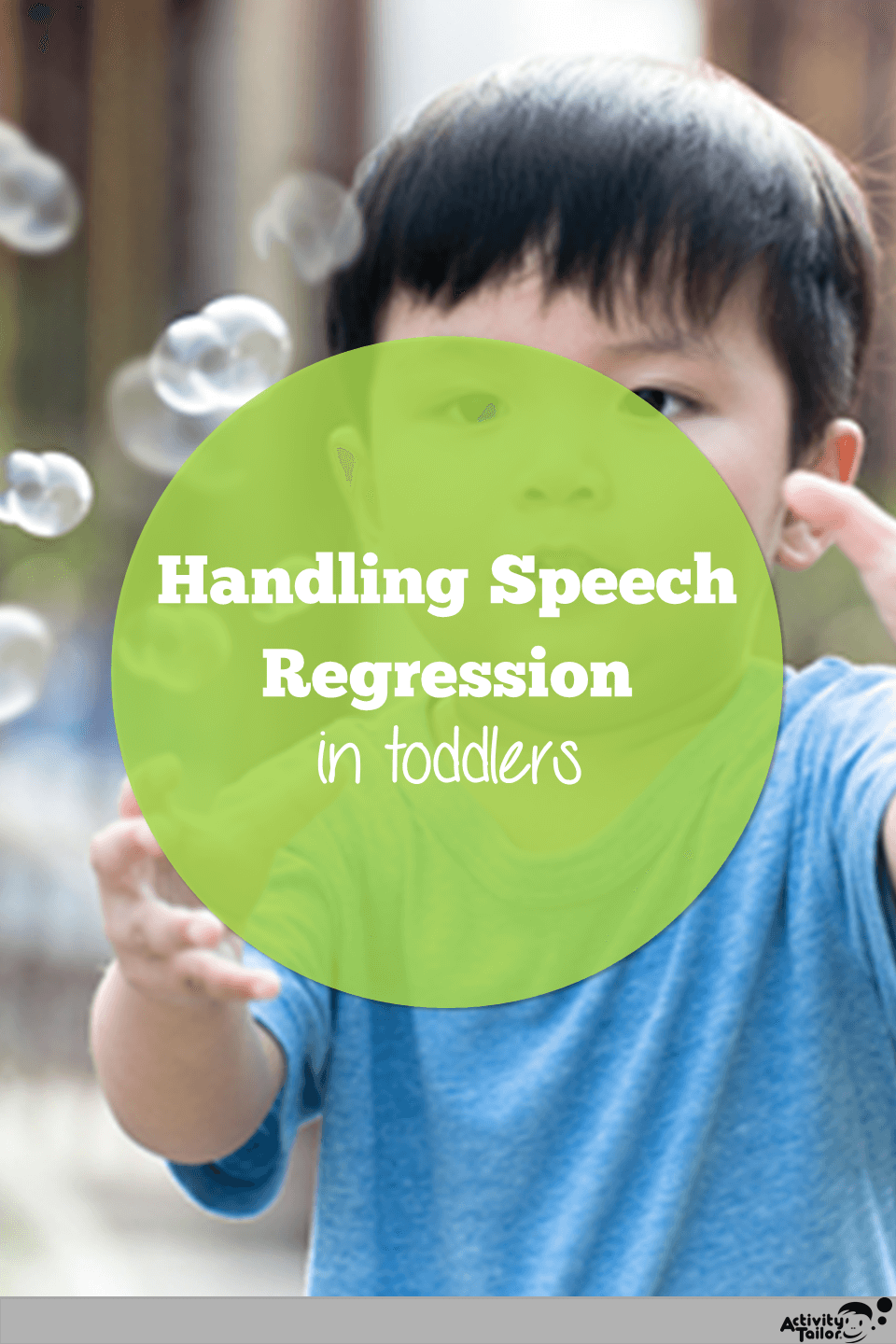
5 EFFECTIVE Ways for SLPs to Promote Practice During School Breaks
School breaks can be such an exciting and much-needed time to recharge for families, but they can also come with unique challenges for families with children with special needs. As an SLP in the schools or in private practice, the support you offer to families during this time can be helpful in more ways than you realize. Read on for 5 effective ways to maintain communication & promote practice during school breaks, regardless of the setting you work in: Why It’s Important to Maintain Communication During School Breaks The connection between dedicated SLPs and clients’ caregivers is crucial to the

6 Ways an SLP Can Support Caregivers of Special Needs Children During the Holidays
Raising a child with special needs can be both rewarding and challenging. These caregivers are often faced with emotional, financial, and social stressors that can lead to higher risks of depression and anxiety, especially when not having a positive support system. These stresses seem to rise during the holidays too! As speech-language pathologists (SLPs), understanding and addressing these caregiver needs is an essential piece to providing care for their children. Read on for 6 tangible ways you can support caregivers of special needs children during the holidays this year: General Stressors for Caregivers of Special Needs Children Caregivers of children

An Introduction to Stuttering Assessments and Therapy for SLPs
Stuttering assessments and therapy can feel daunting, especially early on in your career as an SLP. They don’t have to be though! Continue reading for essential knowledge and hands-on resources to become more confident in treating the children with stuttering on your caseload. What You Need to Know to Get Started with Stuttering Assessments and Therapy Stuttering Assessment A fluency evaluation is similar but also so different from other evaluations you will perform with children as an SLP. Informal Evaluation As with other types of evaluations, obtaining a thorough case history and making detailed observations are crucial pieces to assessing

How to Effectively Teach Pronouns in Speech Therapy
If you work with preschool and early elementary aged children in speech therapy, you are going to be working on correct pronoun usage. Although autistic children often struggle with pronouns, it’s also a common error for many language delayed children. Most children who struggle with pronouns struggle with the part of speech or grammar. It’s not usually a matter of not understanding or recognizing different genders. The most prevalent error is overgeneralization of “he.” Continue reading for hands-on ways to teach pronouns in speech therapy! How Pronouns Develop “Mine” is usually the first pronoun to appear in a child’s vocabulary

How to Support Caregivers with Research Strain
Research strain is a common issue for caregivers navigating a new diagnosis or when they’ve recently become aware of a developmental delay. If you’re an early intervention or preschool speech-language pathologist, recognizing this common issue and learning how to support caregivers with research strain will result in a more successful therapy experience. Researching the causes of developmental delays It’s a natural response for caregivers to search for a cause of a developmental delay or diagnosis especially if the family feels surprised by the information. It’s a way to try and regain some control over a situation that may feel overwhelming

4 Tips for Pediatric SLPs When Talking to Caregivers
Talking to caregivers is important and unavoidable as a pediatric SLP! Be prepared and handle these conversations with expertise and kindness. As pediatric speech-language pathologists, we bring a lot of knowledge and expertise to the table and it’s easy to forget how foreign our speech world is to caregivers. Since speech therapists are often the first point of contact for many families with language delayed children, we need to remain mindful of ways we communicate with the caregivers we serve. Our language can have an immediate impact on the level of trust a caregiver has in us. This trust can

How to Support Caregivers with Guilt
Caregiver guilt is a typical response when a child has speech and language delays. If you’re an early intervention or preschool speech-language pathologist, understanding where it comes from and how you can support caregivers with guilt will help pave the way for a more successful therapy experience. Guilt from risk factors (genetic or environmental) One of the first tasks when a caregiver arrives at a doctor or other health professional’s office is filling out a medical history form. While we might view this information as neutral or a clue to what type of delay/disorder a child might have, for a

Speech Regressions in Toddlers: Why They Happen and How to Help
Have you heard the comment, “Contact your pediatrician if you notice a regression in skills?”… Let’s talk about what speech regressions really mean, why they happen, and how to help. What is a Speech Regression? Regression is a decline in skills. This occurs when a child is not performing skills they once were able to. In regards to speech and language, this might look like a toddler who: stops using words to make requests and now uses jargon or crying has a significant decrease in interaction with other children or adults and seems much more focused on solitary play stops

Data Collection Tips for Pediatric Speech-Language Pathologists
A crucial part of a speech-language pathologist’s work is taking appropriate data. The data provides vital information about a child’s progress and helps guide steps in deciding the next steps for intervention. Though it’s necessary, this is oftentimes a pain point for many SLPs. Follow along in this guide for several data-collection tips to make your life as a pediatric SLP easier! Types of Data You’re likely to find that one type of data collection doesn’t cut it for all your therapy sessions. What works for kids with language goals doesn’t work as well for articulation goals, and so on.

Understanding Childhood Apraxia of Speech: A Beginner’s Guide for Parents and SLPs
Maybe you’re familiar with the term “childhood apraxia of speech” or not. Your child may have recently received this diagnosis, or you have a suspecting child on your caseload. Either way, there’s always more to learn about this rare speech disorder! Read on to learn more about what childhood apraxia of speech is, the likelihood of it to occur, telltale signs, and what to expect in an evaluation and therapy in this beginner’s guide to all things childhood apraxia of speech. What is Childhood Apraxia of Speech? Childhood apraxia of speech (also referred to as CAS) is a neurological motor

5 EFFECTIVE Ways for SLPs to Promote Practice During School Breaks
School breaks can be such an exciting and much-needed time to recharge for families, but they can also come with unique challenges for families with children with special needs. As an SLP in the schools or in private practice, the support you offer to families during this time can be helpful in more ways than you realize. Read on for 5 effective ways to maintain communication & promote practice during school breaks, regardless of the setting you work in: Why It’s Important to Maintain Communication During School Breaks The connection between dedicated SLPs and clients’ caregivers is crucial to the

6 Ways an SLP Can Support Caregivers of Special Needs Children During the Holidays
Raising a child with special needs can be both rewarding and challenging. These caregivers are often faced with emotional, financial, and social stressors that can lead to higher risks of depression and anxiety, especially when not having a positive support system. These stresses seem to rise during the holidays too! As speech-language pathologists (SLPs), understanding and addressing these caregiver needs is an essential piece to providing care for their children. Read on for 6 tangible ways you can support caregivers of special needs children during the holidays this year: General Stressors for Caregivers of Special Needs Children Caregivers of children

An Introduction to Stuttering Assessments and Therapy for SLPs
Stuttering assessments and therapy can feel daunting, especially early on in your career as an SLP. They don’t have to be though! Continue reading for essential knowledge and hands-on resources to become more confident in treating the children with stuttering on your caseload. What You Need to Know to Get Started with Stuttering Assessments and Therapy Stuttering Assessment A fluency evaluation is similar but also so different from other evaluations you will perform with children as an SLP. Informal Evaluation As with other types of evaluations, obtaining a thorough case history and making detailed observations are crucial pieces to assessing

How to Effectively Teach Pronouns in Speech Therapy
If you work with preschool and early elementary aged children in speech therapy, you are going to be working on correct pronoun usage. Although autistic children often struggle with pronouns, it’s also a common error for many language delayed children. Most children who struggle with pronouns struggle with the part of speech or grammar. It’s not usually a matter of not understanding or recognizing different genders. The most prevalent error is overgeneralization of “he.” Continue reading for hands-on ways to teach pronouns in speech therapy! How Pronouns Develop “Mine” is usually the first pronoun to appear in a child’s vocabulary

How to Support Caregivers with Research Strain
Research strain is a common issue for caregivers navigating a new diagnosis or when they’ve recently become aware of a developmental delay. If you’re an early intervention or preschool speech-language pathologist, recognizing this common issue and learning how to support caregivers with research strain will result in a more successful therapy experience. Researching the causes of developmental delays It’s a natural response for caregivers to search for a cause of a developmental delay or diagnosis especially if the family feels surprised by the information. It’s a way to try and regain some control over a situation that may feel overwhelming

4 Tips for Pediatric SLPs When Talking to Caregivers
Talking to caregivers is important and unavoidable as a pediatric SLP! Be prepared and handle these conversations with expertise and kindness. As pediatric speech-language pathologists, we bring a lot of knowledge and expertise to the table and it’s easy to forget how foreign our speech world is to caregivers. Since speech therapists are often the first point of contact for many families with language delayed children, we need to remain mindful of ways we communicate with the caregivers we serve. Our language can have an immediate impact on the level of trust a caregiver has in us. This trust can

How to Support Caregivers with Guilt
Caregiver guilt is a typical response when a child has speech and language delays. If you’re an early intervention or preschool speech-language pathologist, understanding where it comes from and how you can support caregivers with guilt will help pave the way for a more successful therapy experience. Guilt from risk factors (genetic or environmental) One of the first tasks when a caregiver arrives at a doctor or other health professional’s office is filling out a medical history form. While we might view this information as neutral or a clue to what type of delay/disorder a child might have, for a

Speech Regressions in Toddlers: Why They Happen and How to Help
Have you heard the comment, “Contact your pediatrician if you notice a regression in skills?”… Let’s talk about what speech regressions really mean, why they happen, and how to help. What is a Speech Regression? Regression is a decline in skills. This occurs when a child is not performing skills they once were able to. In regards to speech and language, this might look like a toddler who: stops using words to make requests and now uses jargon or crying has a significant decrease in interaction with other children or adults and seems much more focused on solitary play stops

Data Collection Tips for Pediatric Speech-Language Pathologists
A crucial part of a speech-language pathologist’s work is taking appropriate data. The data provides vital information about a child’s progress and helps guide steps in deciding the next steps for intervention. Though it’s necessary, this is oftentimes a pain point for many SLPs. Follow along in this guide for several data-collection tips to make your life as a pediatric SLP easier! Types of Data You’re likely to find that one type of data collection doesn’t cut it for all your therapy sessions. What works for kids with language goals doesn’t work as well for articulation goals, and so on.

Understanding Childhood Apraxia of Speech: A Beginner’s Guide for Parents and SLPs
Maybe you’re familiar with the term “childhood apraxia of speech” or not. Your child may have recently received this diagnosis, or you have a suspecting child on your caseload. Either way, there’s always more to learn about this rare speech disorder! Read on to learn more about what childhood apraxia of speech is, the likelihood of it to occur, telltale signs, and what to expect in an evaluation and therapy in this beginner’s guide to all things childhood apraxia of speech. What is Childhood Apraxia of Speech? Childhood apraxia of speech (also referred to as CAS) is a neurological motor

